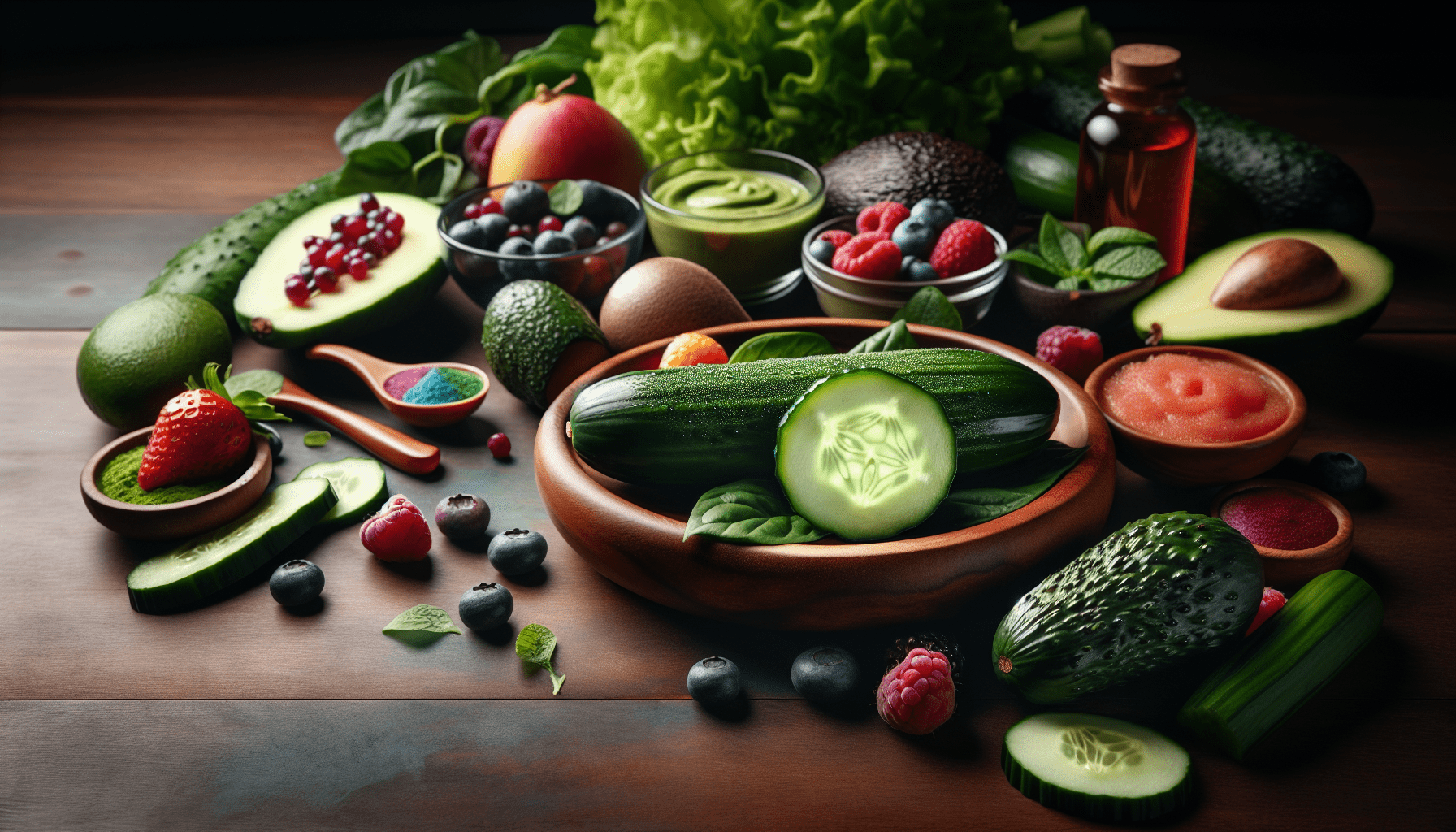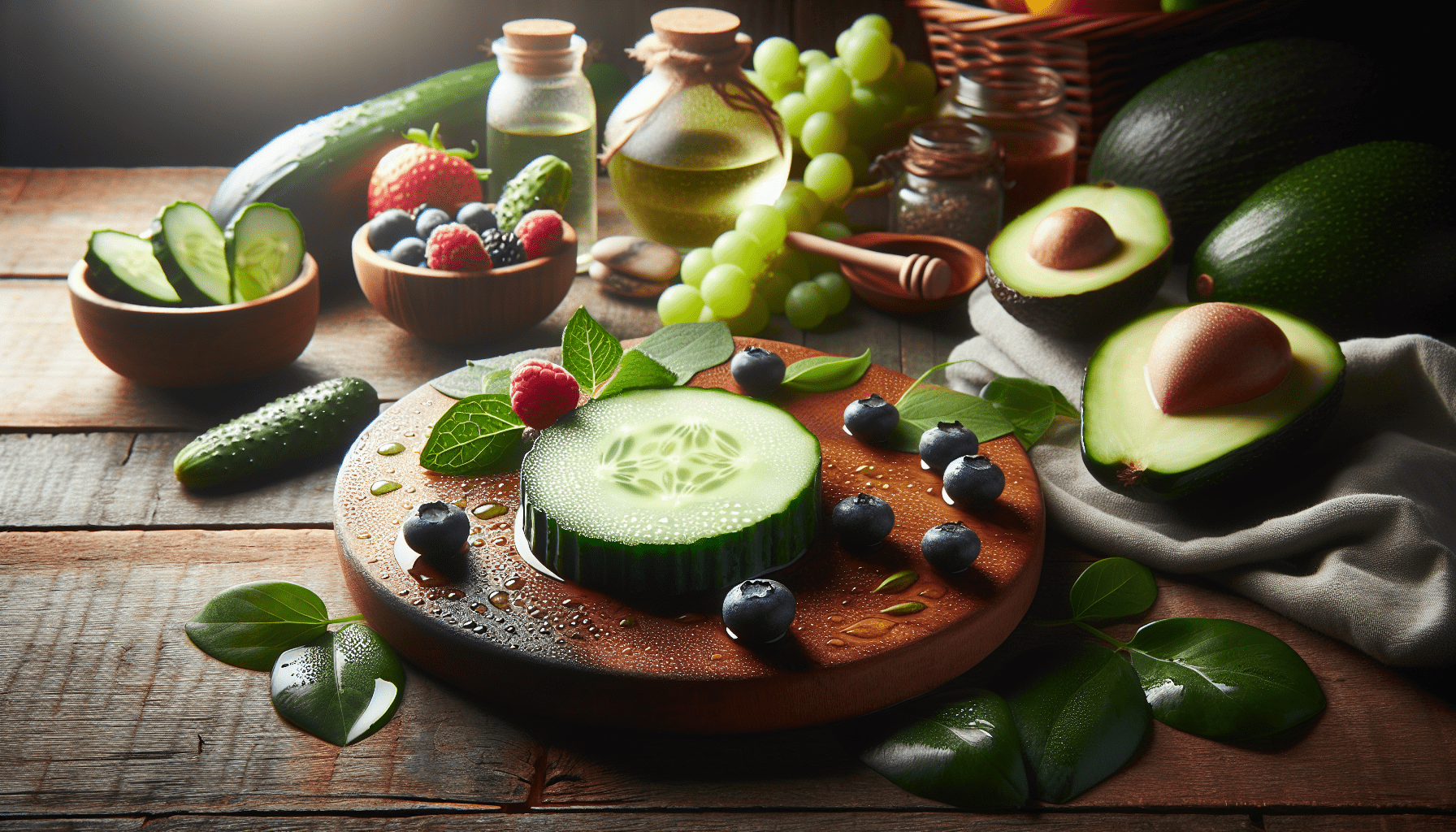Have you ever wondered how your daily diet impacts the health of your skin? Your skincare routine may consist of all the right products, but if you’re not paying attention to what you’re eating, you could be missing a vital piece of the puzzle. In fact, your skin health is intricately connected not only to what you apply on the outside but also to what you nourish it with from the inside. Let’s unravel how the foods you consume can enhance your skincare regime.

The Connection Between Diet and Skin Health
Believe it or not, your diet can significantly influence your skin’s appearance and health. Think of your skin as the reflection of your body’s overall wellbeing. When you feed your body with nourishing, wholesome foods, you’re not only supporting your general health but also giving your skin the nourishment it needs to thrive.
How Food Affects Skin
Everything you consume is metabolized into vitamins, proteins, and amino acids required for your skin’s health. These nutrients are the building blocks of the radiant skin you strive for. For instance, collagen, a protein that keeps your skin firm and supple, is dependent on the intake of adequate proteins. Similarly, vitamins such as A, C, E, and essential fatty acids play crucial roles in maintaining the integrity and youthful appearance of your skin.
Common Skin Issues Related to Diet
Skin reflects what’s going on inside your body. Common problems such as acne, dryness, and premature aging can often be traced back to dietary imbalances. For example, a diet high in processed sugars might aggravate acne, while deficiencies in certain nutrients can lead to dryness and wrinkles.
Key Nutrients for Glowing Skin
Now, let’s dig into the nutrients that are your skin’s best allies. This involves consuming a variety of foods to ensure you’re getting all the necessary vitamins and minerals to bolster your skincare routine from the inside out.
Antioxidants: Your Skin’s Shield
Antioxidants are powerful compounds that protect your skin from environmental damage. They neutralize free radicals, unstable molecules that contribute to aging and cell damage. Foods rich in antioxidants include berries, leafy greens, nuts, and dark chocolate. Incorporating these into your diet can significantly improve skin texture and resilience.
Omega-3 Fatty Acids: Moisture From Within
Omega-3s are essential fatty acids that your body cannot produce on its own. They are key for maintaining your skin’s lipid barrier, which keeps it hydrated and supple. Foods such as salmon, flaxseeds, and walnuts are excellent sources of omega-3s, providing natural moisture from within.
Vitamin C: Boosting Collagen Production
Vitamin C is crucial for collagen synthesis, the protein responsible for your skin’s elasticity and firmness. Including citrus fruits, strawberries, bell peppers, and broccoli in your meals can help support your skin’s structure and ward off wrinkles.
Essential Minerals: Building Blocks of Skin Health
Minerals like zinc and selenium are vital for skin repair and combating free radical damage. They are found in foods like shellfish, nuts, and seeds. Sufficient intake of these minerals can lead to clearer, healthier skin.
Building A Skin-Healthy Meal Plan
Achieving glowing skin is not just about eating the right foods but also about how you incorporate them into your meals daily. Here’s a guide to structuring your meal plan to benefit your skin.
Balanced Breakfast
Start your day with a breakfast that nourishes your skin. Consider options like a smoothie with spinach, berries, and a scoop of protein powder, or an oatmeal bowl topped with nuts and seeds. These choices are packed with antioxidants and proteins that kick start your day with skin-loving nutrients.
Lunch Packed with Greens
For lunch, incorporate a variety of colorful vegetables and lean proteins. A salad with mixed greens, grilled chicken, avocado, and a sprinkle of nuts can be both satisfying and nutrient-rich. The combination of vitamins and healthy fats helps keep your skin glowing through the afternoon.
Snack Smart with Fruits and Nuts
Instead of sugary snacks, opt for fruits like apples or a handful of almonds. These snacks offer a good combination of fiber, vitamins, and minerals, which can help support skin health throughout the day.
Dinner with Superfoods
End your day with a nutritious dinner consisting of superfoods. Think roasted salmon with quinoa and a side of steamed broccoli. Ensure your meal is well-balanced with proteins, carbohydrates, and fats for comprehensive skin benefits.
| Meal Time | Suggested Foods |
|---|---|
| Breakfast | Smoothies, oatmeal with nuts/seeds |
| Lunch | Salad with lean proteins and avocado |
| Snack | Fruits (apples, berries), almonds |
| Dinner | Salmon, quinoa, broccoli |
Foods to Avoid for Clear Skin
Just as there are foods that benefit your skin, there are also those you should limit or avoid to maintain clear and healthy skin. To promote optimal skin health, be conscious of these dietary culprits.
Processed Sugars: Acne Aggravator
High sugar intake can trigger spikes in insulin levels, leading to inflammation throughout the body and potentially worsening acne. It’s best to limit consumption of sugary treats like candies and baked goods.
Dairy: Possible Acne Trigger
Dairy products may contribute to skin issues like acne for some people due to the hormones present in milk. Experiment by reducing dairy intake and observe if there are improvements in your skin condition.
High-Glycemic Foods: Wrinkle Promoters
Foods with a high glycemic index, such as white bread and pasta, can increase blood sugar levels, which might deteriorate collagen and elastic fibers in the skin, leading to premature aging.

Maintaining Hydration for Healthy Skin
Staying hydrated is crucial for skin health, as dehydration can lead to dryness and flakiness. Drink plenty of water throughout the day and include hydration-rich foods to keep your skin supple and resilient.
The Role of Water in Skin Health
Water is fundamental in maintaining the skin’s moisture balance and delivering essential nutrients to skin cells. It helps flush out toxins, keeping your skin looking fresh and clear.
Hydration-Rich Foods
In addition to drinking water, include foods with high water content like cucumbers, watermelon, and celery. These not only help with hydration but also provide vitamins and antioxidants.
Practical Tips for a Skin-Friendly Diet
Adopting a diet that benefits your skin doesn’t have to be complicated. Here are some practical suggestions to integrate into your lifestyle.
Meal Prep for Skin Health
Prepare your meals ahead of time to ensure you consistently eat foods that benefit your skin. This reduces the temptation to reach for unhealthy options.
Reading Labels and Making Informed Choices
Be mindful of food labels and choose products with less added sugar and artificial ingredients. Your skin will thank you for opting for whole, unprocessed foods.
Mindful Eating Habits
Enjoy your meals slowly and chew thoroughly. This not only aids digestion but also helps your body absorb nutrients efficiently, benefiting your skin in the process.
Conclusion
While a robust skincare routine is essential, remember that real beauty begins with the food choices you make daily. Your skin is a mirror of what’s happening inside your body. By consuming a healthy diet filled with skin-nourishing foods and avoiding those that compromise your skin’s health, you can significantly enhance the effectiveness of your skincare practices. Embrace a balanced approach to eating, and you might just find that the glow from your skin is a reflection of your overall health.
So, what changes will you make today to boost your skincare routine with healthy eating? Your skin will certainly reflect your mindful culinary choices.


